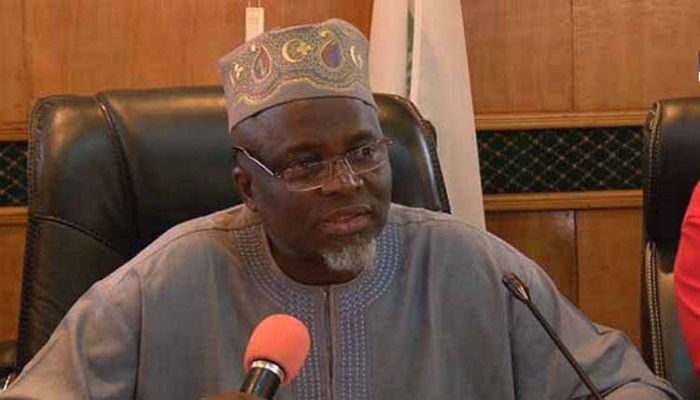
• As Senate considers scrapping of Post-UTME exams
The House of Representatives has mandated its Committee on Tertiary Education and Services to investigate the circumstances surrounding the reduction of cut-off marks for admitting candidates into tertiary institutions.
This followed a motion by Hassan Saleh (Benue-APC) on the “Need to Investigate the Reduction in the Cut-off Marks for Admissions into Tertiary Institutions in Nigeria’’ at plenary on Tuesday.
The committee is expected to report back findings within four weeks, was directed to determine whether the cut-off marks reduction would lower the standard of education in the country.
Moving the motion, Mr. Saleh expressed concern that the new policy was bound to lower the standard and quality of education from the tertiary institutions.
According to him, many candidates who perform poorly in Unified Tertiary Matriculation Examination (UMTE) can secure admission through nepotism, bribery and corruption while many other candidates who perform excellently can be denied admission.
Mr. Saleh said that in spite of the fact that more than 500,000 candidates scored above 200 marks, representing 50 per cent of the total mark, Joint Admissions and Matriculation Board (JAMB) reduced cut-off mark to 120.
He said that the cut-off mark represented only 30 per cent of the total examination mark of 400, adding that 100 marks fixed for Polytechnics and Colleges of Education was 25 per cent of the total mark.
In his contribution, Ahmed Pategi (Kwara-APC) disagreed with the motion, saying that the decision taken by JAMB was in order.
Mr. Pategi said that all stakeholders in tertiary education were in agreement with JAMB on the new policy.
He added that it was unfair to deny a child admission into higher institution simply on his/her UTME score even after eleven years of basic education and possession of five credits, including in English Language and Mathematics.
Other lawmakers supported the motion and called for a reversal of the policy, saying universities were supposed to be centres of excellence for learning, hence the need to always admit the best candidates.
According to them, it will be in order to produce graduates that can compete favourably with their peers anywhere in the World.
Afe Oluwookere (Ondo-APC) described the new policy as “highly detrimental’’ to the country’s push for economic growth and development.
On their parts, Henry Archibong, Rita Orji and Abubakar Chika called for the scrapping of JAMB and the UTME.
They stated that lowering cut-off marks for admission into tertiary institutions was a signal that the Board had outlived its usefulness.
The lawmakers also accused JAMB of buckling under pressure from privately owned universities, many of whom were seeking to increase the number of yearly admissions into their schools.
Abubakar Chika (Niger-APC), a former lecturer at the Polytechnic, said it was highly disappointing that JAMB could succumb to pressure from private institutions, which he alleged had long pushed for cut-off marks to be lowered.
“Let me even open up, this decision was taken because of private universities. They usually need to admit the children of the rich, who are not ready to work hard,’’ he said.
The Registrar of JAMB, Ishaq Oloyede, a professor, announced that a minimum of 120 marks in the UTME would be required for placement of candidates into universities, while 100 marks were needed for placement into Polytechnics or Colleges of Education.
The announcement followed the August 22 policy meeting between JAMB, heads of tertiary institutions and other stakeholders, on modalities for the conduct of admissions into tertiary institutions for the 2017/2018 academic session.
In a related development, the Nigerian Senate on Tuesday revisited the regulatory conflict between the Joint Admission and Matriculation Board and universities in offering admission to candidates.
The lawmakers, in a motion moved by Umaru Kurfi, APC- Katsina, debated scrapping of the compulsory Post-UTME examination for candidates seeking admission into tertiary institutions.
Speaking on the motion, the Senate Leader, Ahmed Lawan, APC-Yobe, said there was no need for post-UTME tests after the candidates have passed the Unified Tertiary Matriculation Examination by the Joint Admission and Matriculation Board.
“There is no need for this test. If we say we believe in JAMB, then, there is no cause for setting up a Post-UTME test. It amounts to stress and unnecessary financial requests.
“After JAMB, they go ahead to set up tests as if the one conducted by JAMB is not of standard. We must ensure that JAMB’s test is the only way to secure admission,” he noted.
In his submission, Shehu Sani, APC-Kaduna called for the intervention of the federal government in the contention between JAMB and tertiary institutions.
“Our concern is the fact that after JAMB is post-UTME. That becomes a series of hardships and sufferings on the way to university. The problem we are facing is peculiar to us. It is easier for a Nigerian to secure admission outside this country than it is here. Why should it be so?
“This is one opportunity through which this parliament can make a clear and categorical statement on the need for us to urge the Federal Government to intervene and do all that need to be done to make JAMB the only sensible, credible and efficient avenue for people to get admission into university. This is the best option for us,” he submitted.
The lawmakers resolved that the Senate Committee on Tertiary Institutions and TETFUND should meet with parties involved to map a way forward.
Credit: News Agency of Nigeria (NAN)






